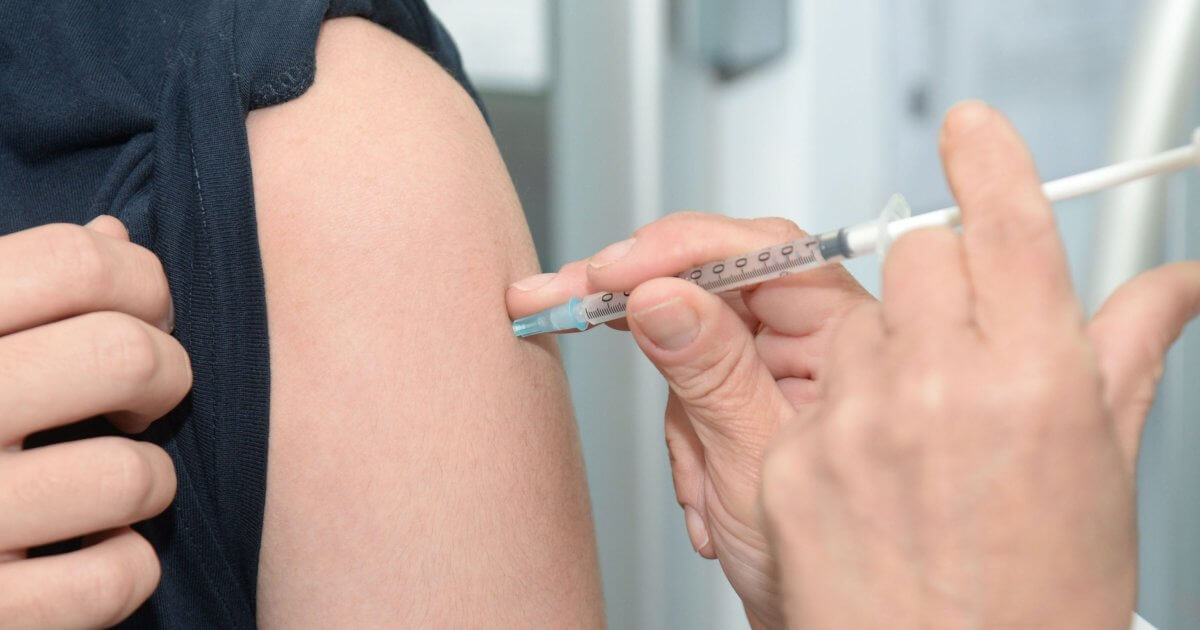By Alison Maxwell
With significant new questions swirling around the safety and dosage for the approved COVID vaccines, cancer patients still need to get vaccinated leading oncologists tell SurvivorNet.
Read MoreSurvivorNet spoke to six oncologists to get their thoughts on what cancer patients need to know about the COVID-19 vaccine options.
With all of these new developments, should I even get the vaccine?
The answer is a resounding YES! All oncologists we spoke with agreed cancer patients should get the vaccine as soon as it is available to them in most cases.
“The key is to be vaccinated as soon as possible,” says Dr. Paul Richardson, an oncologist specializing in multiple myeloma at the Dana-Farber Cancer Institute.
“There is no reason not to have a vaccine, unless your doctor recommends against it,” says Dr. Catherine S M Diefenbach, a hematologist/oncologist at NYU/Langone’s Perlmutter Cancer Center.
I’ve received or plan to receive my two-dose mRNA-based Pfizer or Moderna vaccine. Now I hear I might have to get additional shots?
It is still not clear whether booster shots will be required for the mRNA vaccines, but the doctors we spoke with expect follow-up shots will be necessary.
“In terms of the eventual need for booster vaccines that may well turn out to be the case, however my hope is that due to widespread uptake of vaccines our society will have returned close to normal at that point and any boosters will be rolled out in a very efficient and controlled fashion,” says Dr. Patrick Forde, director of the Thoracic Oncology Clinical Research Program and associate professor of oncology at Johns Hopkins University.
Dr. John Greene, chief of infectious diseases at the Moffitt Cancer Center, likens the COVID-19 vaccine to the flu shot. “We know it’s not going to last a lifetime,” he says. “In fact, we’re expecting you are going to have to get it every year, just like the flu shot. And we’ve been preaching and saying that….So that’s probably the new norm. And I think it’s going to be another hard pill to swallow for people.”
I’m currently on chemotherapy, should I still get the vaccine?
Yes, you should get the vaccine, but you may need to adjust your timing. “If patients are receiving chemotherapy, as a general statement we recommend they receive the vaccine at least two weeks after their chemotherapy is complete, and after their immune system has recovered from side effects of chemotherapy,” Dr. Mikkael Sekeres, chief of hematology at the University of Miami Sylvester Comprehensive Care Center, tells us.
What other subset of cancer patients need to adjust the timing of their vaccine?
Dr. Greene says bone marrow transplant patients have to wait at least three months following therapy, and CAR-T patients have to wait six months.
Should I be concerned about the potential for blood clots following vaccination?
The risk of blood clots is extremely low, according to all oncologists we spoke with. Dr. Sekeres says cerebral sinus venous thromboses occurs at a rate of approximately 1 per million. In contrast, he says risks of blood clots from COVID-19 is up to 15% on 1 in 6-7 patients.
Dr. Diefenbach agrees: “While there is a very small risk of CVT that may be associated with the J&J vaccine that is currently being evaluated, it is important to understand that this occurred in a tiny number of patients, and the risk of significant illness from COVID is substantially higher.”
Dr. Balazs Halmos, medical oncologist and director of the Thoracic Oncology Program at Montefiore Medical Center, says the CDC’s temporary pausing of the J&J administration was “appropriate.”
“We have two other super safe and now very available mRNA based vaccines- Pfizer/Moderna,” he explained during the J&J 12-day hold. “All patients should feel very comfortable getting these vaccines in the interim.”
I received the Johnson & Johnson one-dose vaccine. Should I be concerned?
At the time of the J&J pause, Dr. Halmos said that patients should be reassured that their risk for an event is very low and they should immediately report any new developments. That should be standard practice when taking any of the vaccines.
Dr. Forde underscores that the pause in administration of the J&J vaccine was made “because of an extremely rare event.”
“This pause was made in order to obtain all the information about those cases and maintain public confidence in the vaccine, essentially this is evidence of the regulatory system functioning as it should,” he says.
Dr. Forde says he would “have no hesitation” in recommending the J&J vaccine once the pause was lifted [as it is now]. “For cancer patients in general the risk from COVID-19 infection far outweighs any risk of a side effect from the vaccine,” he says, which echoes the CDC’s updated statement.
Dr. Greene relates a personal story: “My mother got the J&J vaccine at the age of 98, a week or two ago. She’s not worried. I’m not worried about her getting a clot that could be fatal. But, it’s better that she get vaccinated with whatever is available than catch the COVID at her age, which would be potentially fatal.”
I’m a blood cancer patient. Do I get the same protection from the vaccine?
Research indicates that some blood cancer patients don't get the same benefit from the COVID-19 vaccine. This includes people with cancer that affects the blood, bone marrow or lymph nodes, particularly those with chronic lymphocytic leukemia.
“We recommend receiving the vaccines, but caution that patients should continue to wear masks and avoid crowds afterwards, as the vaccines may not afford them the same protection from Covid-19 as the rest of the population,” says Dr. Sekeres.
Contributing: Noorulain Khawaja, Sean Smith
Learn more about SurvivorNet's rigorous medical review process.


